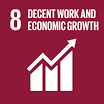UK Corporate Governance Post Brexit : All About Inclusive Job Creation
We have been redefining the scope of corporate governance in the United Kingdom for some years now, with considerable debate, consultation and legislation. But for all the tinkering, much of the process continues to take place in a theoretical 'bubble' that ignores the wake-up call of the referendum vote in June 2016 to leave the European Union - even as the country wrestles with the implementation of the decision.
Although it is commonplace to hear talk of a 'loss of trust' in business, rarely do we hear as much about the fundamental loss of trust in having a working future. The social contract is broken, as intimated by Mark Carney, the Governor of the Bank of England back in 2014 - and Nicky Morgan, Conservative MP, more recently. To begin to fix it will take a lot more scrutiny, dialogue and collaboration for inclusive job creation.
"We have a gulf between government policy, inclusive growth and the world of the City and its boardrooms. I am going to close this gulf" says Mark Hepworth, the man behind a new index -a rating for FTSE 350 companies that ranks them on their social value as employers."
It is the brainchild of The Good Economy, (Twitter: @TheGood_Economy), the company at which he is founder director and whose CEO, Sarah Forster, is also his wife. "She's the clever one" he tells me. Together they work on international projects that have at their heart a belief in the possibility of a humane model of capitalism that builds an economy that works for everyone.
Recent OECD reports on economic growth in the UK as well as its ranking by the World Economic Forum (WEF) on inclusive growth and development reveal the scope of the challenges facing the UK. The OECD defines inclusive job growth as "sustainable job creation that leads to a more equitable distribution of good job opportunities, both socially and geographically."
The Good Economy has developed what it says is a unique methodology for assessing inclusive job growth with an integrated analysis of company, sector and place performance that makes such growth equally relevant for the likes of businesses, investors, governments and communities.
Investor demand for answers to what jobs companies are actually creating and where has provided some of the inspiration for its work.
Its work also highlights a critical need for better company reporting on its workforce and on the detail of its job creation. In other areas of concern on UK corporate governance that appear to be in permanent 'stall' mode, the lack of adequate data held by FTSE 350 companies on the composition of their workforce when it comes to ethnicity and race has been publicly noted by Baroness McGregor-Smith in her independent review for the government on race in the workplace.
Recent events have underlined the importance of big FTSE companies to inclusive job growth both through their direct operations and supply chains, and also the risks that come with corporate failure - the most obvious example being Carillion plc, says The Good Economy. Using its job ratings methodology, it has ranked FTSE 350 companies in 2017.
Data analysis by The Good Economy allows it to reveal which communities will be the hardest hit when company job closures hit the headlines. It can also show how the inclusive job growth performance of sectors and local economies will be affected.
As we face significant disruption from technological change and the use of automation and artificial intelligence, such analysis could be critical to the creation of an informed social picture for individual business strategy.
Mr Hepworth describes the state of the UK experience since the beginning of this decade in the words of Jagdish Bhagwati, the Columbia University Professor: "immiserising growth": economic growth associated with a fall in living standards. This is also the critical backdrop for the referendum vote in 2016.
In the FTSE 350, there are 150 companies directly employing 2.4 million people in the UK, and the UK share of total global employment in these companies is 46%. Yet despite the large employment presence and their economic importance - and they attract a large share of UK institutional and individual investment - the average annual UK job growth rate for these 150 FTSE companies was less than half a percent (0.35%) over the past three years.
That is considerably lower than the rate for all businesses with more than 50 employees (1.8%) says The Good Economy.
The UN Sustainable Development Goals (SDGs) have become an important part of the rhetoric of corporate responsiblility as they gain traction as a common platform for government, businesses, investors and NGOs.
UN Sustainable Development Goal 8
But it is SDG 8 - 'Decent work and economic growth' that is the "Cinderella SDG" says Mark Hepworth. "It's the one that corporates and impact investors alike must invite to the ball."
A full list of The Good Economy's FTSE 350 rankings are available from the company. Expect to hear a lot more about them. I first heard about them via an email from the All Party Parliamentary Group (APPG) On Inclusive Growth (Twitter @APPGIncluGro ).
The OECD has invited the APPG to host the next meeting of their Global Parliamentary Network and bring the global debate on inclusive growth to London in April. Here is a draft programme.








